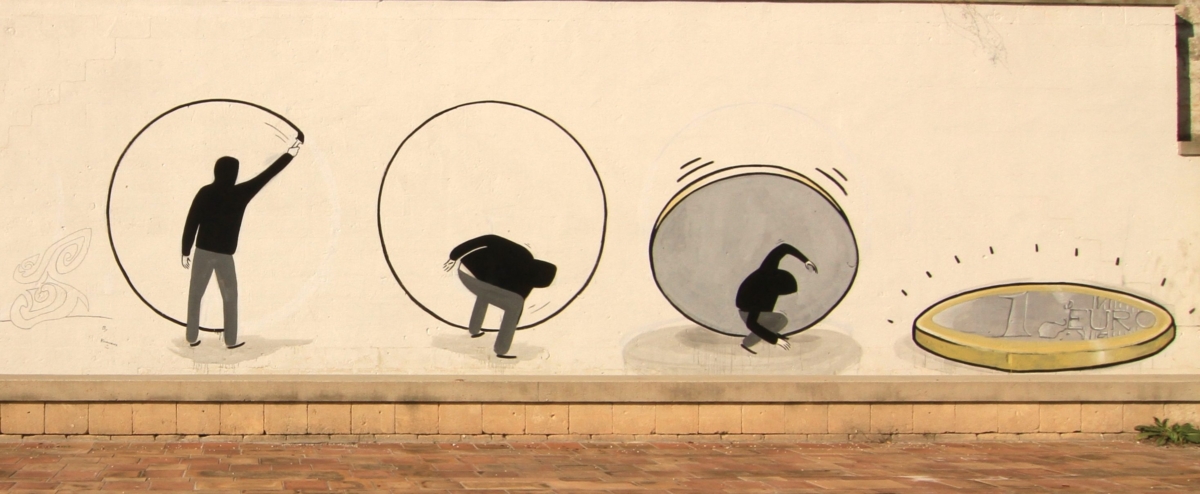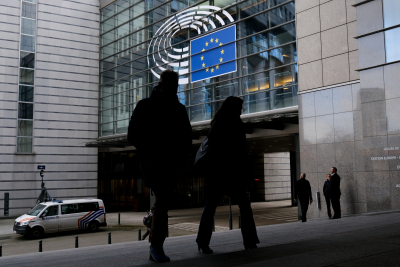Today, Transparency International EU released a comprehensive report on the Eurogroup. The report “Vanishing Act: the Eurogroup’s accountability” finds the institution evades proper accountability even while its decisions profoundly impact the lives of millions of citizens.
As the “informal” government of the euro area, it has no staff or headquarters. Legally speaking, the Eurogroup cannot take decisions, but in practice, the Eurogroup adopts its decisions through other institutions. This way it exercises power over policies usually regarded as national competencies, potentially rejecting national budgets and levying fines, coordinating economic policies and imposing conditionality for the euro area bailouts in crisis times.
“The very idea of an ‘informal’ institution governing the euro defies accountability,” said Leo Hoffmann-Axthelm, Research and Advocacy Coordinator at Transparency International EU. “Ministers have grown comfortable with negotiating behind closed doors, so closer democratic scrutiny would make life more difficult for them. Hiding behind the Eurogroup allows them to ‘blame Brussels’, while the Eurogroup as such is accountable to nobody.”
The Eurogroup’s finance ministers are individually accountable to their national parliaments, but this decentralised accountability does not work. “Only France and Germany manage to cope with all the information,” added Hoffmann-Axthelm: “All other finance ministers make decisions on crucial issues, including other countries’ national budgets, without having the full picture and without adequate parliamentary control.”
The report recommends that the Eurogroup should become an EU body or be integrated into the Council of the EU. This should also apply to the European Stability Mechanism (ESM), the euro’s rescue fund, which is directly controlled by the Eurogroup. When meeting under the guise of the ESM, the Eurogroup also escapes all EU transparency rules, as Transparency International showed in a 2017 study[1].
Another
key ask from the anti-corruption group is to make the position of
Eurogroup President a full-time role. As it stands, the President is a
national finance minister who chairs the meetings part-time, leading to
inevitable conflicts of interest.
The full report is available at www.transparency.eu/eurogroup
END
Notes to editor:
The
report benefited from close cooperation with the Eurogroup’s Presidency
and the institutions contributing to its proceedings. It is the fourth
study in the Transparency International series on EU economic governance[2]
institutions and the first of its kind on the Eurogroup, describing the
internal structures and decision-making of this informal institution in
detail.
[1] From crisis to stability: How to make the ESM transparent and accountable, www.transparency.eu/ESM
[2] All studies can be accessed at: www.transparency.eu/eurozone-studies




